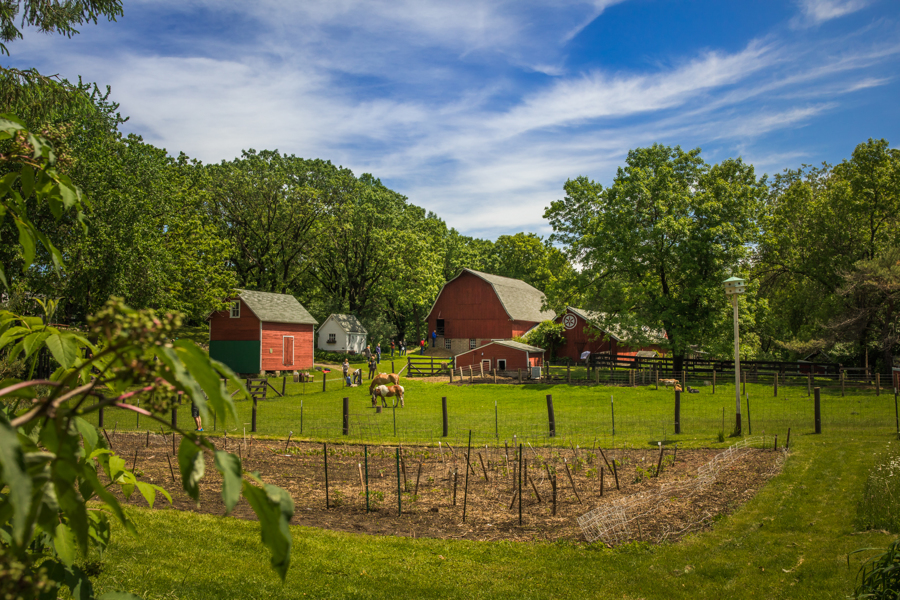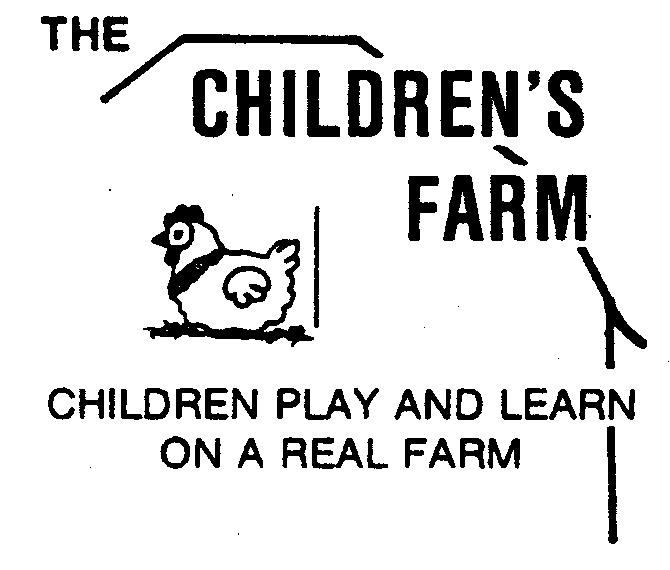
The Children's Farm
Founded in 1974, The Children’s Farm is a nonprofit school for young children ages three and four years that emphasizes fostering the child’s intellectual, social, physical, and emotional growth, using the farm animals, garden and nature as the learning environment. Small classes with qualified teachers allows the consideration of each child’s abilities and interests.
Based on well-researched psychology and educational theory, The Children’s Farm philosophy incorporates mutual respect, experiential learning, and confidence building in its teaching with young children.
Philosophy & Objectives Early learning is important and learning by doing is basic.
Love of nature and understanding of the interactions of all living things are learned.
There are many outdoor activities in a spacious, aesthetic, natural surrounding and first-hand experiences with the nature cycle in gardening, hikes, wildlife observation, weather, plants and trees, and food.
Enjoyment of and respect for animals is learned, and this knowledge can help children understand their emerging selves and strengthen their ability to love and respect other people.
Many experiences with animals on the farm are provided, including daily chores, baby animals, birth, death, and food production.
Photo by Katie Haslam
Learning how to control their bodies through many kinds of physical activities gives children strength, confidence, and skill that carry over into all areas of development.
There is a large outdoor play area, and climbing, digging, building, swinging, and daily physical fitness activities such as skill-building, movement exploration, or hiking are offered.
Respect, love, and enjoyment of other people are learned gradually as the child experiences and interacts with an increasingly larger circle of friends and acquaintances.
A homelike environment and small groups allow for an informal atmosphere with many opportunities for social interactions.
Self-confidence is learned through developing many skills so the child becomes increasingly self-reliant.
Children are encouraged to dress themselves, prepare food, make choices, take responsibility for their actions, and help themselves and others.
Concepts of space, shape, classification and quantity are learned at an early age as children play with real objects and are guided to see relationships.
Learning through the senses and direct experiences with shapes, number, size differences, and a large variety of manipulative material, much of it found in the natural or home environment, and introduced to the child individually when ready to learn.
Communication skills are basic to future learning and to the child's ability to speak and listen well and are learned as the child is surrounded with language and encouraged to talk. Letters and numbers make sense as children observe, count, write and read about real things and their motivating activities.
There are so many activities that are stimulating to talk about! By discussing, questioning, sharing ideas, planning new projects, carrying out directions, books, stories, charts, signs, and children’s story telling, children begin to see the written word as an extension of speech and as another exciting way to communicate.
Learning attitudes are developed, and a child's early contact with school is a strong determiner as to how the child views the whole world of school and learning.
Curiosity and initiative are encouraged as a child learns to direct his own learning. Each child’s own learning rate and style are respected. Warmth and friendship accompany real enthusiasm for learning.
